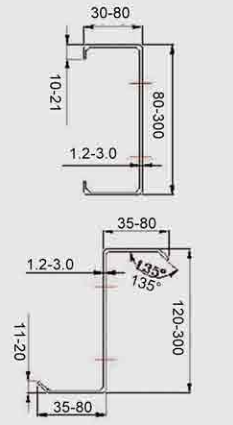
The Evolution and Significance of Metal Forming Machines
Metal forming is a crucial process in manufacturing that involves the shaping of metal parts through mechanical deformation. This process is widely adopted in various industries, including automotive, aerospace, construction, and electronics. At the heart of metal forming are metal forming machines, which have evolved significantly over the years, transforming the way manufacturers produce metal components.
Metal forming machines encompass a range of equipment that perform various operations such as bending, forging, rolling, and stamping. Each type of machine is tailored to specific applications, leading to efficiencies in production and innovation in design. Some of the most common metal forming machines include hydraulic presses, mechanical presses, and CNC (Computer Numerical Control) machines.
Hydraulic Presses An Essential Tool
Hydraulic presses are among the most versatile and widely used metal forming machines in the industry. They utilize hydraulic power to generate significant force and can be used for a variety of applications, including deep drawing, stamping, and folding. The flexibility of hydraulic systems allows for the handling of different materials, from soft metals like aluminum to harder materials like steel.
These machines are essential for large-scale production, where precision and repeatability are critical. Recent advancements in hydraulic technology have led to the development of more efficient systems, reducing energy consumption and increasing productivity, making them an eco-friendlier option for manufacturers.
Mechanical Presses Precision and Speed
Mechanical presses, on the other hand, are known for their speed and precision. They operate using a flywheel mechanism, which allows for rapid actuation and high-speed production cycles. This makes them ideal for high-volume applications, such as stamping and blanking parts for the automotive industry.

Much like hydraulic presses, mechanical presses have seen technological innovations, including servo-driven options that enhance their control and efficiency. These modern mechanical presses offer improved energy efficiency and reduce overall cycle times, leading to high productivity levels while maintaining the quality of the finished product.
CNC Machines The Future of Metal Forming
As technology continues to evolve, CNC machines have emerged as a game-changer in the metal forming landscape. By integrating advanced computer technology with machine operation, CNC machines provide unprecedented control and precision in metal forming processes. This capability allows manufacturers to produce complex geometries and intricate designs that were previously difficult to achieve.
CNC machinery not only enhances the quality of the finished products but also significantly reduces lead times from design to production. With the ability to quickly reprogram for different designs, manufacturers can respond effectively to market demands and customize products, increasing their competitiveness in the industry.
The Role of Automation and Industry 4.0
The metal forming industry is also experiencing a shift towards automation and smart manufacturing, thanks to the advent of Industry 4.0 technologies. Automation in metal forming machines minimizes human error, enhances safety, and increases overall productivity. Machine connectivity allows for real-time monitoring and data collection, enabling manufacturers to optimize their processes for efficiency and cost-effectiveness.
In conclusion, metal forming machines play an indispensable role in modern manufacturing. From hydraulic and mechanical presses to CNC technology, the advancements in this field have enabled manufacturers to produce high-quality metal components with precision and efficiency. As automation and smart technologies continue to reshape the landscape, the future of metal forming machines will undoubtedly lead to further innovations, ensuring their relevance for years to come.